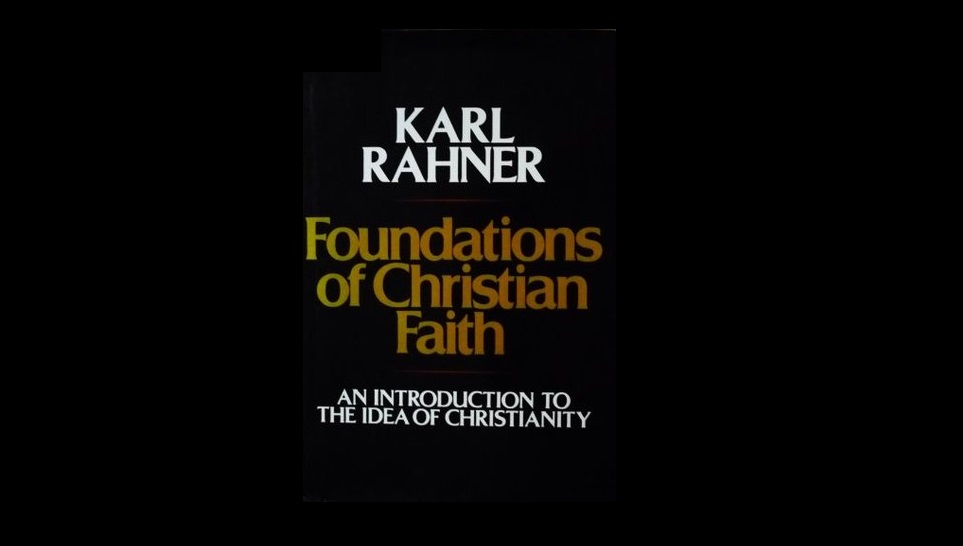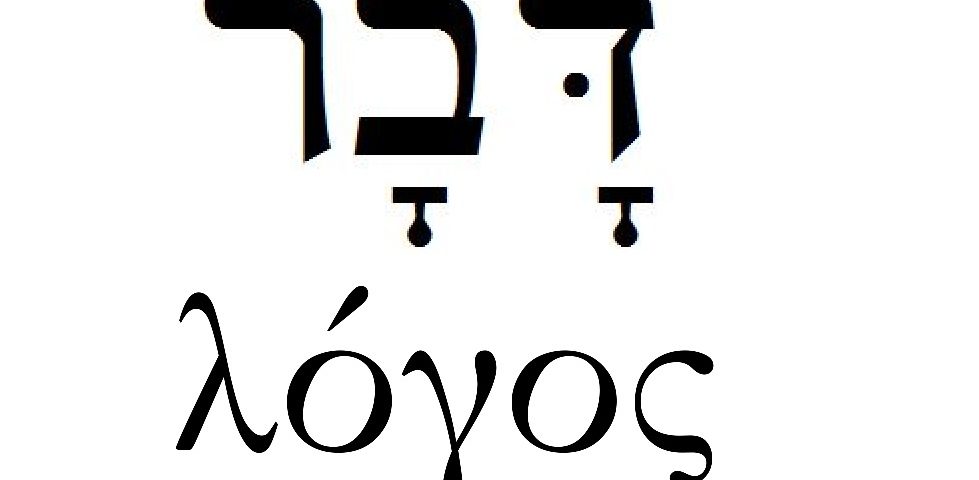
Karl Rahner and His Christology
January 1, 2018
Are There Any Trinitarians to be found in the NT? Part 1
January 1, 2018The word or the Word of God?

Anchor Bible, vol. 4, “Logos”:
Logos is used 331 times in the NT and in most of the same ways in which it is used in the LXX and in Greek literature in general. It can mean a statement (Luke 20:20), an assertion (Matt. 5:12), a command (Luke 4:36), a report or story (Matt. 28:15), a proverb or saying (John 4:37), an oracle or prophecy (John 2:22), a speech (Matt. 15:12), or the matter under discussion (Mark 9:10). In the plural logoi can refer to speeches of various sorts (Matt. 7:24; 13:37; 26:1; Mark 10:24; 13:31; Luke 1:20; John 14:24). It can be used of written words and speeches, as well as of the separate books of a larger work (Acts 1:1; Heb. 5:11). It can also be used, although not often, to mean “ground” (Acts 10:29) or “reason” (Acts 18:14) for something. With the exception of Johannine literature, however, logos is not used in the NT in the more philosophical senses of rationality or of the rational principle of the universe.
What characterizes the use of logos in the NT is not some new meaning for the word beyond what is found in the Septuagint but its reference to the divine revelation of God, specifically the divine revelation of God through Jesus Christ and his messengers. In many cases the “word of God” is simply the Christian message, the gospel. The apostles and preachers are said to “speak the word of God” (Acts 4:31), to “proclaim the word of God” (Acts 13:5), or to “teach the word of God”(Acts 18:11). Because it is the word of God, it is also efficacious (Heb. 4:12; 1 Thess. 2:13), to be received (1 Thess. 1:16; Acts 8:14; 11:1) and to be acted on (Jas. 1:21). Since this word of revelation is brought by Christ, the “word of the Lord,” “the word of Christ,” or the “words” of Jesus can be used in the same sense as the “word of God” (John 5:24; 12:48; 18:32; Acts 8:25; 12:24; 13:44, 48-49; Col. 3:16). Logos is often qualified by other genitive phrases (“the word of the kingdom” [Matt. 13:19]; “the word of salvation” [Acts 13:26]; “the word of reconciliation [2 Cor. 5:19]; “the word of the cross” [1 Cor. 1:18]; “the word of righteousness” [Heb. 5:13]). But logos is also often used with no qualifying genitive to refer simply to the Christian message as such (Matt. 13:20-23; Mark 2:2; Luke 8:12-13; Acts 6:4; Gal. 6:6; Jas. 1:21).
Dictionary of Christ and the Gospels, “Regeneration”
We find the idea of regeneration both in James and 1 Peter. In James 1:18 God is the author of it, Christians its subjects, and the word of truth the instrument. We are reminded here of the parables, in which the word of God — that is, the gospel — is spoken of as a seed, and of 1 Cor. 4:19 (planting), though in James it is the will of God and not the ministry of an apostle to which the new birth is referred. When James contemplates Christians thus begotten as a kind of first fruits of God’s creatures he has apparently in view the universal new-born world of Matt. 19:28. The regeneration of individual men has the promise in it of a new heavens and a new earth. There is a similar connection of ideas in Rom. 8:21ff. Peter, who uses twice (1:3, 23) the word which is exactly rendered by regenerate (born again), connects the experience which he so describes first with the resurrection of Christ, and then with the incorruptible seed, which he identifies with the word of God — the Gospel message which has been delivered to his hearers. The first brings him closely into line with Paul: the new life is distinctly life in the power of Christ’s resurrection, a living hope which has an incorruptible inheritance in view (cp. 1 Pet. 1:3; Rom. 6:4ff). This resurrection life is of course ethical because it is divine but its ethical character is more explicitly secured by reference to the incorruptible seed from which it springs. “Love one another from the heart fervently having been born again” (1 Pet. 1:22ff).
Message (Greek Logos)
Whenever this Greek word stands for the content of the preaching of the good news, it is translated by message. “Word” has been avoided because in current usage it often means the Bible. (Translators’ New Testament, p. 567)
Mark 13:10, Word Bible Commentary
“The gospel” is shorthand for the gospel of the Kingdom of God (cp. 1:14, 15). The negative side of the good news is the coming judgment of God. Hence repentance is required. Hence the gospel is not always welcome, especially to those who have no desire for the human situation to change. The disciples may therefore expect serious opposition.
